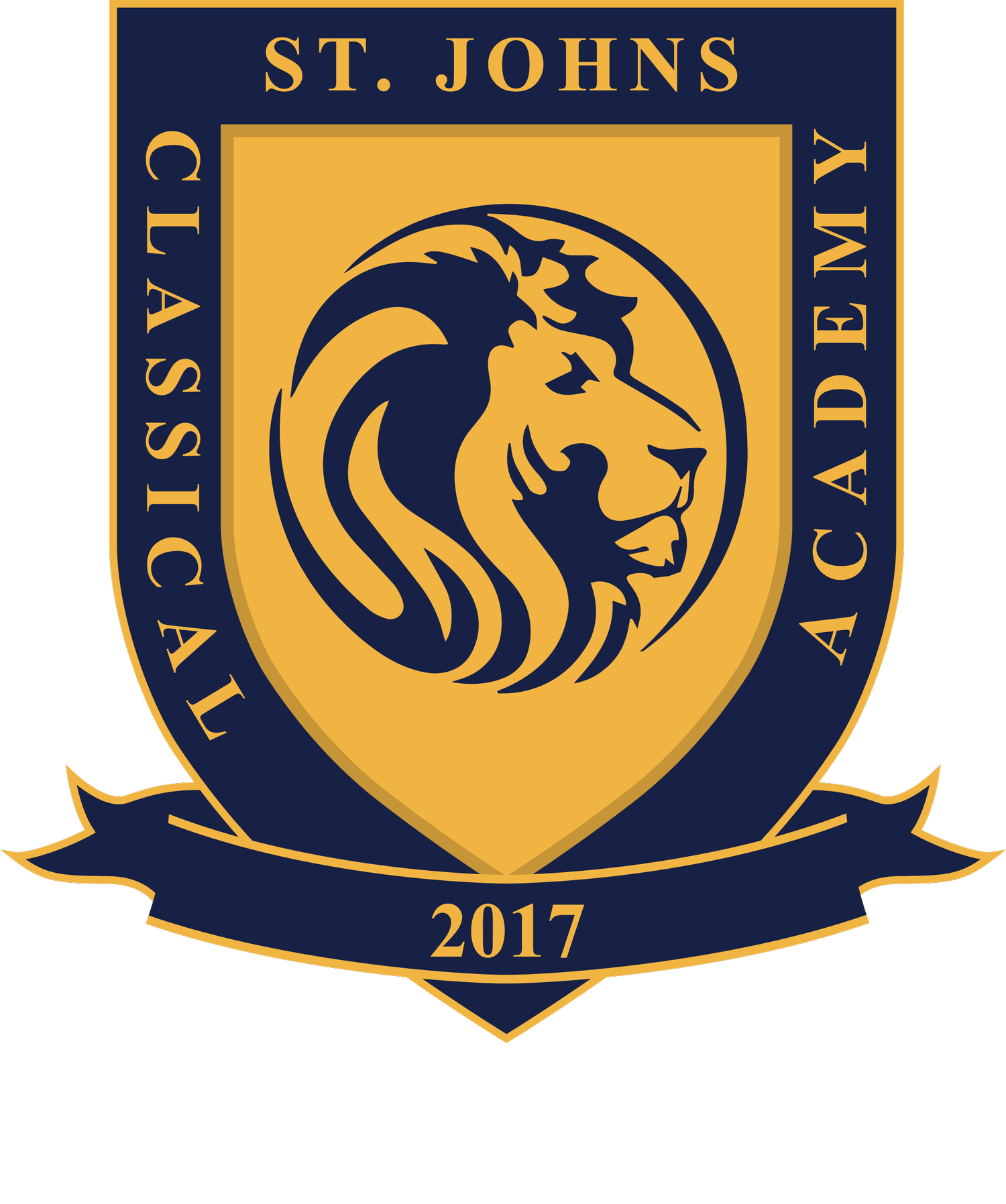Grievance Process
All grievances MUST be resolved at the school.
Parent Grievances
Grievance Related to the Classroom SJCA firmly believes that adults must be models of good character even in the most difficult situations. Should a parent have a grievance concerning a particular class or the administration of the school, that grievance should be resolved using the following chain of command. Issues that arise in a particular classroom should always be addressed with the teacher first since the teacher always has more direct knowledge of the scholar than anyone else.
a) The Teacher. Parents should schedule a meeting by phone to address concerns. If a phone meeting does not resolve the issue, an in-person meeting can be scheduled. Except in emergency circumstances or situations involving imminent danger, parents shall not confront a teacher about an issue with scholars present, including his/her own. If the teacher and parent agree that it is in the best interest of a scholar to have a discussion in the presence of the scholar, they may do so. Note: Grievances or information involving an ongoing or imminent threat to a scholar’s well-being should skip this stage and be immediately directed to the Headmaster.
b) Dean of Students. If the grievance cannot be resolved with the teacher, the parent should discuss the matter with the Dean of Students by sending an email and request for a phone conference. In some situations, an in-person conference may be necessary.
c) The Headmaster. If the grievance is not resolved by the Dean of Students, the parents should email their concerns to the Headmaster.
d) The Governing Board via the Parent Liaison. If the grievance cannot be resolved after addressing his or her concerns with the teacher or the administrators, then a parent must submit their grievance in writing to the Parent Liaison of the Board. The Fleming Island Campus Parent Liaison is Mrs. Kendra Chaney (parent.liaison@stjca.org).
Grievance Related to an Administrator
Grievances regarding an administrator should be directed to the individual first, then in writing to the Board.
Importance of Following the Grievance Procedure
The practice of following the communications with the Academy on matters concerning particular scholars encompasses far more than grievances. It refers to parents' communication of any kind that seeks or requires an action on the part of the Academy regarding their scholar. St. Johns Classical Academy understands that parents will have questions, opinions, and comments that need to be expressed concerning their children’s education. Such communication can be very helpful to the running of the Academy. Our preference is that such communication be expressed initially to the teacher or teachers of the child. If further communication is warranted, the parent should consult the appropriate administrator. If further communication is warranted after seeing the headmaster, then the parent should go to the Board’s Parent Liaison. The Board members are not the first point of contact and, therefore, will refer communications that seek response or action to the appropriate members of the administration. The reason for this procedure is that the teacher invariably has the most direct knowledge of the child and can usually do more to remedy or ameliorate a situation than can the headmaster or board member. We understand that some parents are “conflict averse” and do not want to bring up a potentially difficult issue with a teacher. Nonetheless, the teachers are eager to help each child in whatever way possible. Some situations, admittedly, seem by their very nature to warrant a discussion with the headmaster initially. For example, parents may have questions or concerns about the overall homework load or a particular way of teaching. As a result, it is easier and more expedient to speak to the dean of students and headmaster first. In these cases, however, it is always better for the parent to have as much specific information as possible, so the headmaster can act on that information. General comments such as “St. Johns Classical Academy is really hard” may be true but cannot be acted on as effectively as specific comments about the nature of the coursework or the teaching. The Board members will refer inquiries to the appropriate school leader for communications that seek a response or action.
